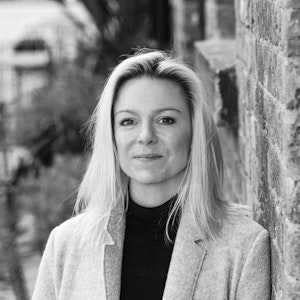The causes of mental ill-health
Understanding why we suffer and the impact of family and societal structures.
Author
Philippa Richardson
Pip is Founder of The Circle Line, a Transactional Analysis psychotherapist, a former City litigator and a Head of Marketing in the property industry. She works with individuals, leaders and groups to help them function well in life and work, believing that we can all write our own life story.

Liberation. Good word. Great word in fact in the context of mental health.
Dr Sanah Ahsan's article in the Guardian talked about "liberation psychology", which argues that we cannot isolate “mental health problems” from our broader societal structures. Read the original article here.
Dr Ahsan hit on many key points about society’s oppressive impact on our mental health. I agree that in the quest for good mental health for all, less oppression and more equality is key.
However, oppression comes in different layers and forms.
We are oppressed by society but also by our family of origin, and crucially we learn to oppress ourselves.
We can finger-point at the woes of today, and yet we’re all responsible here. I believe as well as learning to best cope with the uncontrollable external forces (luck, geography, history) we need to look holistically at the three key sources of oppression involved in mental wellbeing:
The individual - our internal thoughts, feelings and behaviours. These are hugely influenced by what we absorbed from and how we adapted to our environment and family dynamics. Fearing expulsion from the pack (a child’s life-source) we adapt; dividing ourselves internally, walling bits off, quieting parts of ourselves. And that is where trouble lies. The good news is these patterns are changeable. We need to liberate our own thoughts and feelings to create a liberal society.
The family - the interactions between carers and children in particular mould our psychological patterns; they inspire and nurture - and they can squash and oppress. These patterns of thinking, feeling and behaving are likely to endure throughout our lives, sometimes creating “mental health challenges” and certainly impacting the groups we form and the rules we create.
Society - culture, institutions, government and policies to divide resources both originate in and form our internal structure - from the needs, ideas and processes in our individual brains and bodies. It's a two-way flow. To change society we need to serve our needs and nurture our individual mindsets. Society is made up of individuals after all.
Dr Ahsan said “instead of trying to change “mindsets” in therapy, we need to change race- and class-based hierarchies, the housing and economic system”. Oh yes, but I don’t believe it’s an “instead of”. We need to address the whole system - both our external world and our internal world. As evolving organisms that respond to our environment, and organisms that in turn create our environment, organism and environment cannot be separated.
"We need to address the whole system - both our external world and our internal world."
Dr Ahsan’s view that “purely medicalised, individualised understanding of mental health puts plasters over big gaping wounds" not addressing the source of violence that is society. Absolutely. However, the source of these wounds and oppressions is just as much the passivity, hardships or emotional neglect that we experience in our original family as much as the wider world “out there”.
The "big four" childhood wounds might come as a surprise:
Hurt
Abandonment
Neglect/non-relationship, and
Engulfment.
It’s a bitter pill to swallow, and it’s no one’s fault. Parents were surviving too, repeating patterns, and harm is usually unintentional. But we have a responsibility to learn better in order to break the cycle.
Once we recognise the interconnected nature of our internal and external worlds, we stand the best chance of evolving faster.
We can learn how to support, heal and educate parents to in turn support, accept, and literally raise, rather than oppress, their children. We can offer therapy to heal the inevitable individual pains created when those around us “fail” us (very few escape the vulnerability of childhood without some pain; isn’t that part of life’s journey?). And we can take the actions Dr Ahsan suggests at a societal, economic and political level. This includes acknowledging that some people and groups may need more support than others to break free of longer histories of oppression.
This way we create internally stable, resilient individuals, able to feel safe enough and create a safe enough physical environment which doesn’t rely on oppression and inequality in a blind bid for survival of the fittest.
In short, we can come together.
The greater the sense of physical and psychological safety we create amongst each other at every level, the less control we try to exert, the more liberated we are. And the better our mental health, collectively and individually.
As respected author, researcher and psychotherapist Besel van der Kolk says,
“Probably the most important aspect of mental health is feeling safe with other people.”
We all have a part to play in that, with the individual decisions we make every day about our consumption, our finances and the way we treat others. If we are unhealthy, our society will be unhealthy too - and vice versa.
It’s where our internal and external worlds are aligned that the magic happens. It’s not either/or. It’s both. It’s a circle. We’re all one.